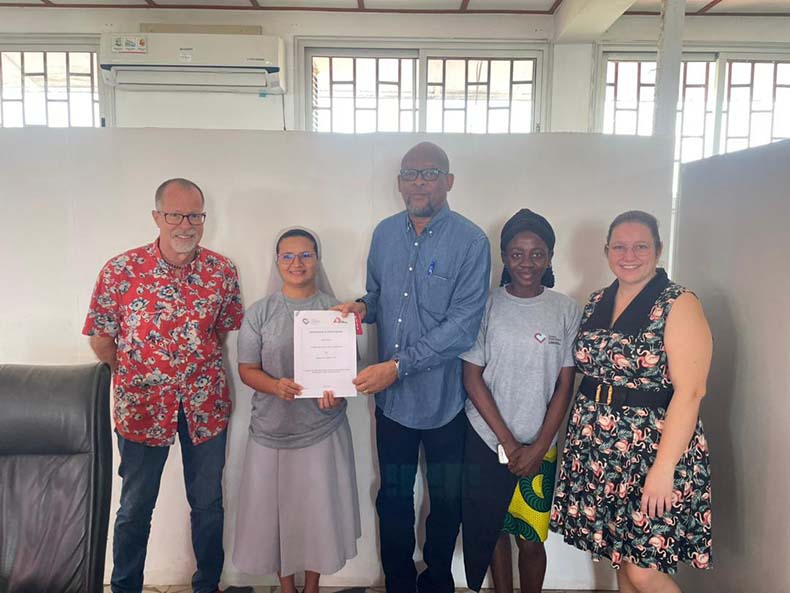
21 Dec 2023 Médecins Sans Frontières will refer patients to our Mental Health Unit
The Mental Health Unit of the Benedict Menni Health Center in Monrovia will treat Liberian women who suffer or have suffered mental illness or substance use disorders referred by Médecins Sans Frontières.
Under a Memorandum of Agreement signed yesterday by Sisters Hospitallers and Médecins Sans Frontières, our centre in the Liberian capital will provide women referred by the medical and humanitarian organisation with multidisciplinary diagnostic and rehabilitation programs aimed at restoring their dignity, promoting their physical, social and psychological well-being and reintegrating them into their community. These programs will include psychotherapy, psychopharmacotherapy and occupational therapy, as well as specific care for women with substance use disorders. The patients, from all over the country, will receive individualized therapy and health education, and will take part in the centre’s rehabilitative and recreational activities, in a stable and safe environment to facilitate their improvement and return home.
MSF referrals will also benefit from other services available at our centre, such as the Empowerment and Mentoring Program for small business start-ups, outpatient consultations and follow-up visits, and the work of our Social Work staff with families, among others.
The MoU signed by the Superior of Sisters Hospitallers of Liberia, Sister Winnie Guyao, the head of MSF in that country, Dr. Yann Diplo, and the director of the National Catholic Health Council (NCHC) of Liberia, Wilhelmina Kade, has a one-year renewable duration, and will also allow professionals from the Benedict Menni Health Center to benefit from training programs organized by Médecins Sans Frontières.
MSF has been providing medical and humanitarian aid to the people of Liberia since 1990, in the context of its international activity as a non-profit organization dedicated to assisting people threatened by armed conflict, violence, epidemics or neglected diseases, natural disasters and exclusion from medical care. It has more than 6 million people and partners or collaborating entities around the world, and, among other activities, develops in Liberia programs for mental illness and epilepsy.

Sorry, the comment form is closed at this time.